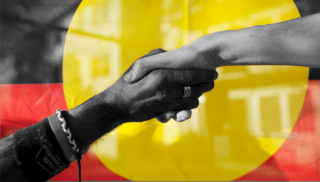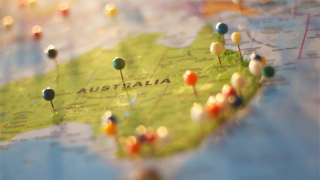Pain inhabits her words, her tone, her posture. Raw. Visceral. Some pain is intense but short-lived, but not hers. This is a deep sorrow decades in the making. The pain of one who has been terribly wronged, whose loss has been incalculable, but whose pleas for redress fall upon deaf ears. There is also anger, pain’s erstwhile companion. An anger that cuts like a knife but in her case is righteous rather than vengeful or bitter.
And grace. Etched in her words, her tone, her posture as indelibly as the pain. The grace of one who has struggled long for justice and learned to be patient with those who don’t understand.
As I listened to this indigenous elder speak I connected with her pain, was warmed by her grace, and humbled by the dignity with which she carried herself. But I was wearied. Grief and anger are an all consuming pit, a beast that can never be sated.
I couldn’t help asking, “when will we have done enough?” We’ve had the 1964 referendum, land rights, Mabo, the apology to the stolen generation. We’re heading towards constitutional recognition. Yet pain, grief and anger linger unabated.
I wonder if these things will ever be enough because, as important as they are, they have two fundamental failings. First, they are piecemeal responses to an historic injustice that we have never really come to grips with. My ancestors came to this country, waged war on the indigenous nations, took their land, and displaced them. There was no treaty, just a denial that any war had occurred and that the land had been occupied. In the decades that followed the stains of this upheaval were passed from one generation to another, both black and white. Violations were heaped upon the original violation as we non-indigenous continued to deny history and indigenous people struggled to find a way forward in a new order that treated them like ghosts.
Second, there is an assumption that indigenous people will assimilate into a wider Australian culture, that the price of losing the war waged 200 years ago was that the vanquished would abandon their sense of nationhood. Australia has become a nation built upon the idea that many cultures can exist around a common core, but this is a far cry from recognising separate nations within a single landmass. We operate with the idea of singular sovereignty, that nationhood is a case of either/or, that one belongs to this nation or that nation. So what are our indigenous people who remain connected to their sense of indigenous nationhood to do?
There is a wound in the soul of our nation and in the hearts of the first nations that cannot be healed by piecemeal reforms and a denial of their nationhoods. Do we not need a comprehensive settlement that squarely addresses the past, not just parts of it but all of it; that recognises that an invasion occurred, wars were waged, peoples displaced; by which some measure of compensation is made; and that lays a platform for a better future in which the rights, status, and the nationhoods of the first peoples are recognised? I don’t know what this will look like. That will require much dialogue and negotiation. But I can’t see that there is any other way for enough to be enough.
photo credit: Aboriginal flag Adelaide Australia dailyshoot flags via photopin (license)






